By Eric Viola, WCTA Public Policy Analyst
June 30, 2014 (Seattle, WA) –There was little consensus amongst the panelists—even on issues as fundamental as whether or not carbon emissions were a problem—which contributed to a lively discussion at the final event in the WCTA’s Climate Series: A discussion of Cap and Trade policy.
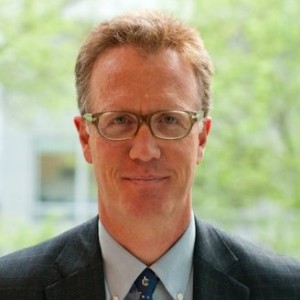
Daniel Malarkey, WCTA Government Affairs Committee Chair and Vice President of Business Development and Public Policy at 1Energy Systems, opened the event and introduced Chamber President Maud Daudon. Ms. Daudon introduced the Seattle Metropolitan Chamber of Commerce’s commitment to the issue, explaining her three-part bottom-line position. “You need to have economic development, environmental stewardship, and you can’t leave anyone behind,” she described, “you need to make sure the rising tide really does lift all boats.” Part of that involves encouraging the spread of information and rational debate, and the Chamber has been proud to collaborate with the WCTA to present the four-part Climate Series.

Jon Talton, Economics Columnist for The Seattle Times, acted as moderator for the panel, which was made up of a disparate group of speakers: Senator Doug Erickson (R-42), Chair of the Senate Energy Committee and a member of the Climate & Legislative & Executive Workgroup (CLEW); Susan Frank, President & COO for The Better World Group; and Ross MacFarlane, Senior Advisor for Climate Solutions.
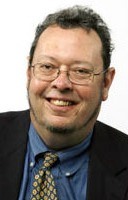
There were some fundamental differences of opinion among the panelists. When asked if he believed carbon emissions were a problem in need of legislative action, Senator Erickson replied, “there are a lot of great things we can do for fuel efficiency by reducing carbon emissions; whether we do that for the sake of efficiency or for the sake of reducing carbon really doesn’t matter: we get to the same result.” The panelists were not even in agreement over the status of California’s Low Carbon Fuel Standard.
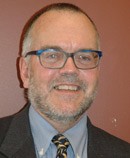
Ross MacFarlane, Senior Advisor for Climate Solutions, had an equally firm—but diametrically opposed—stance regarding climate change: “we are in a crisis. We can no longer talk about climate change in the future tense; we’re seeing extreme weather events occurring more frequently—once-in-a-century storms are occurring nearly every year—and we’re the canary in the coal mine here in the Puget Sound where ocean acidification is already impacting marine life.”
What’s the cost to our economy if we don’t act? “In the billions of dollars even if we start today,” said Mr. MacFarlane, “it would be much more catastrophic than the lending bubble.” To him, the option of inaction is inexcusable. “When you see a fork in the road, take it,” Mr. MacFarlane argued. More than one path is available, but the important thing to him is that we take any path.
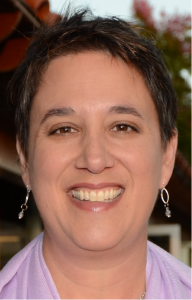
The role of new R&D in clean technology played an important part in the discussion and was an area of at least partial agreement. “We absolutely need more money in R&D, ensuring that we help companies get over that valley of death,” explained Ross MacFarlane. Giving young innovators a helping hand when they are most vulnerable can help link innovation with the real-world applications the world needs.
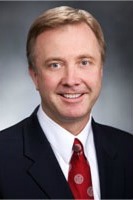
Senator Erickson had a different take on the matter: “increased R&D is one area where we can all agree—but you can’t legislate technological innovation.” For Senator Erickson, the government’s role ought to be a limited one, and providing uneven incentives for a wide range of R&D-heavy companies is too broad a task for the lean government he envisions.
“Maybe you can’t legislate innovation,” Susan Frank replied, “but you can use legislation to make R&D more attractive.”
These conflicting opinions on the role government and the need to reduce emissions were central to the discussion. Senator Doug Erickson, member of the Climate & Legislative & Executive Workgroup, summarized his position: “there are so many options for us to reduce our emissions that I don’t see why we would want to punish ourselves by implementing carbon pricing. We have a lot of things in Washington State that we should be proud of; Washington is one of the lowest carbon-producing states, we have strong hydro power, we have a reputation for being a high-tech state, and we should take advantage of all of that.”
For Senator Erickson, implementing “artificial standards” produces weak results at the cost of efficiency. “A great example is the much-touted reduction of carbon emissions in Seattle.” This occurred largely because concrete production moved out of the city, he said. We “didn’t reduce our carbon footprint, it just moved. We didn’t use less concrete, we just imported more of it.” Cap and trade, which produces a complex system involving a great deal of government oversight, is an unacceptable solution for the Senator.
Susan Frank, President and COO of The Better World Group took up the Senator’s issues with inefficiency. “I understand there are concerns about complexity” she began, “but I can tell you that we are seeing tremendous innovation, and we’re seeing companies move to California because of our regulation. We’re seeing a very positive impact from AB-32,” the state’s flagship legislation.
In California, where support of implementing cap and trade was bipartisan, the system was designed to be a business-friendly approach to carbon pricing. “It was actually the oil industry that wanted cap and trade and not a carbon tax,” revealed Ms. Frank. The result is a 17% decline in emissions, and the legislation has expanded to cover roughly 85% of the state’s emissions. With new activities coming into the system in 2015, that number will get even higher.
When asked about Washington’s role to play on the national stage, Susan Frank replied, “We’d like to link with Washington State. Our governor has made it clear that if we can get Washington in the program, it gets us to a whole new level in innovation and development; it would really create an information highway.”
“Larger systems are more efficient,” Mr. MacFarlane agreed, “joining California would allow us to minimize administrative costs and burdens and maximize the impacts. Joining a large regional market—California, Quebec, and Washington together represent a fifth of the world economy—would really maximize our impact.”